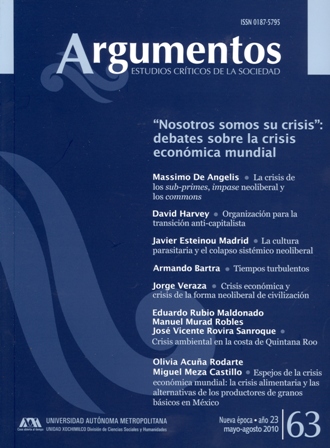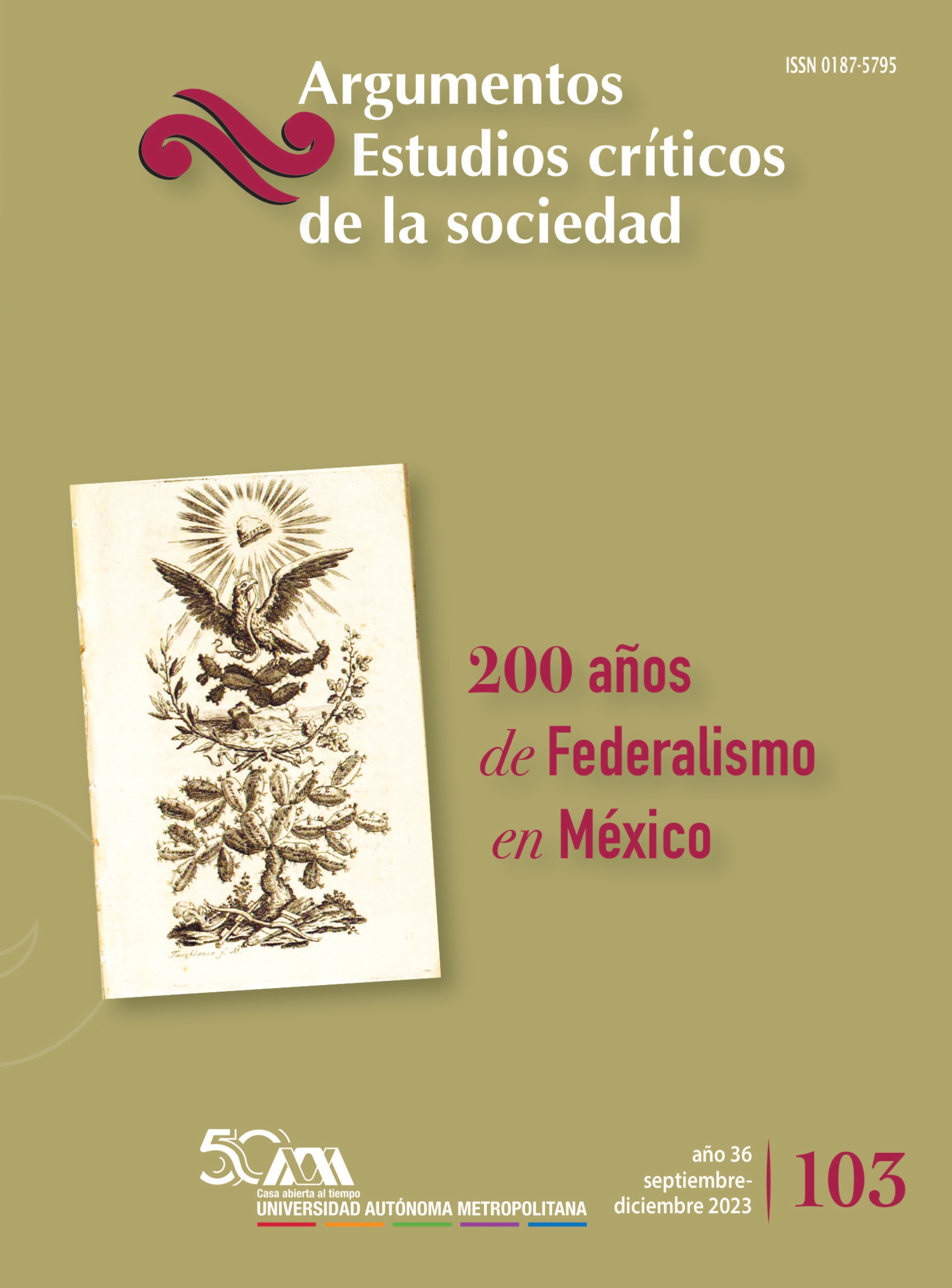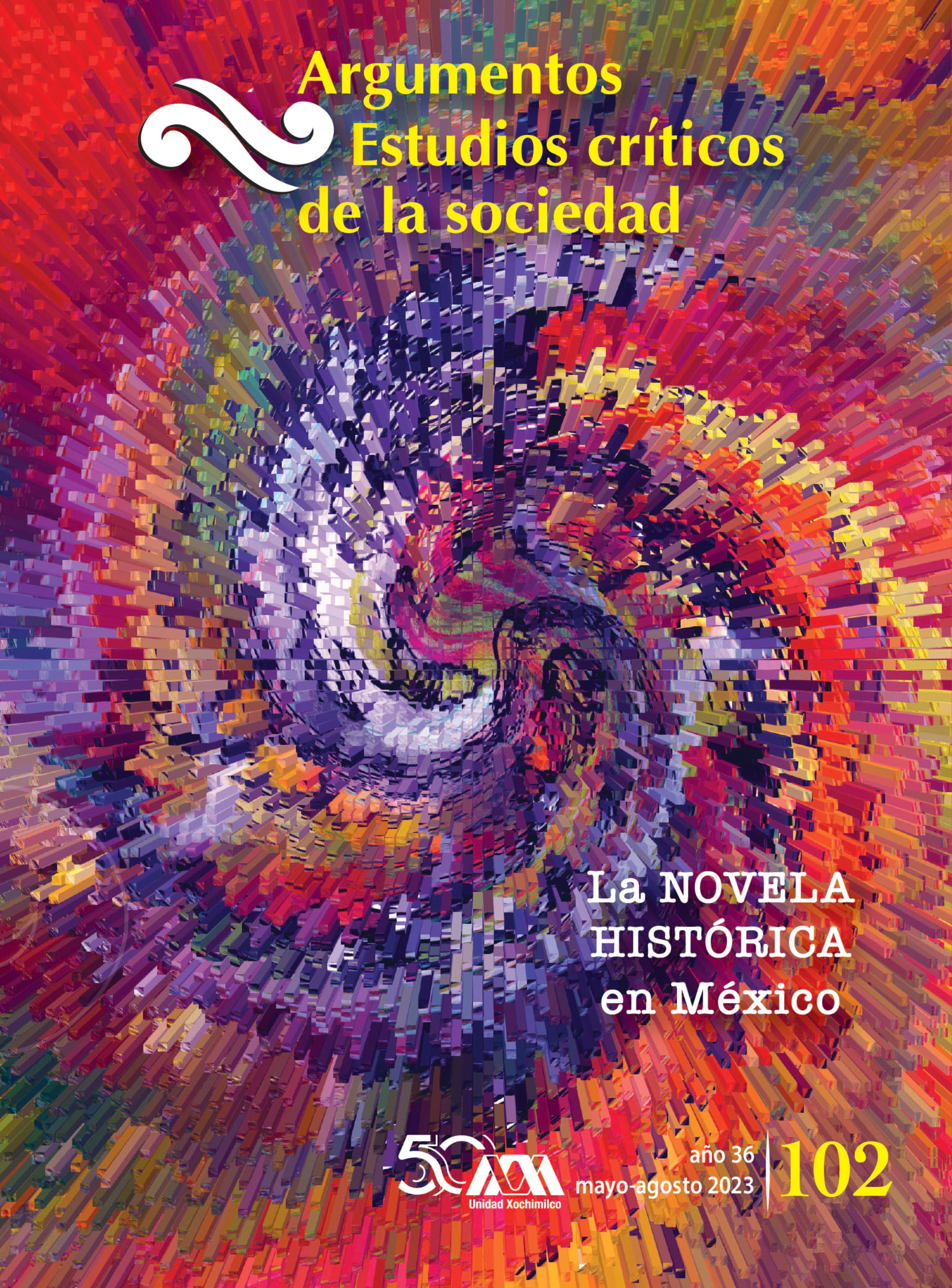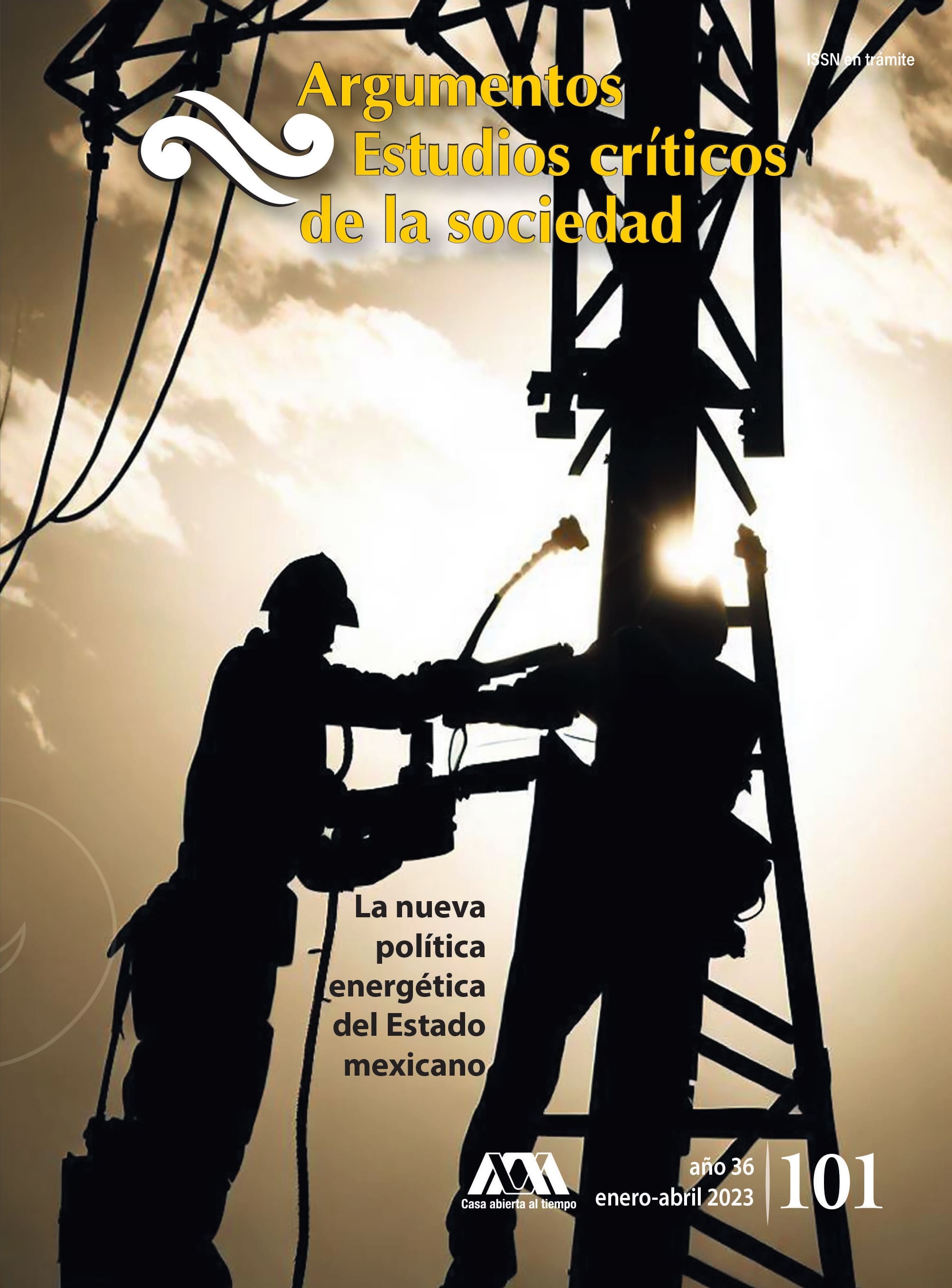La crisis de los sub-primes, el impase neoliberal y los commons
Keywords:
crisis, sub-primes, neoliberalism, commonsAbstract
Marx studied the reproduction of the commons which he defined as social reproduction, to the extent that this takes place in the capitalist form. The cycles of neoliberalism and production of commons are interdependent and the social forces which speak for capital are well aware of that. In Marxian analysis of capital there is the presence of capita?'s "other"; thtat which is "the oustside", exactly there in the forge of capitalist production. This is the dialectic of capital which aims to recover class struggle, "the outside", as a function of its own "development". What does this disquisition on the role of reproduction ande "the outside" of capital have to do with the sub-primes crisis? As usuall the crises of capital illuminatew the contradictions of the specific historical forms of capitalist development, that is to say, the recovery of that which is outside of capital. Thus, recurring crises are moments of a mechanism for the enclosure and disciplning of social work which is continuous, exactly because the conflict between opposing value forms and practices are continuous.
References
Bell, Peter y Harry Cleaver, “Marx’s Theory of Crisis as a Theory of Class Struggle”, The Commoner, núm. 5, otoño, 2002 [http://www.commoner.org.uk/cleaver05.pdf ]. Publicado originalmente en Research in Political Economy, vol. 5, 1982.
Caffentzis, George, Exciting the Industry of Mankind. George Berkeley’s Philosophy of Money, Kluwer Academic Publisher, Dordrecht/Boston/Londres, 2000.
——, “Immeasurable Value?: An Essay on Marx’s Legacy”, The Commoner, núm. 10, primavera/verano, 2005 [http://www.commoner.org.uk/10caffentzis.pdf ].
Cleaver, Harry, Reading Capital Politically, University of Texas Press, Austin, 1979.
De Angelis, Massimo, “The Political Economy of Global Neoliberal Governance”, Review, vol. XXVIII, núm. 3, 2005, pp. 229-257.
——, The Beginninbg of History. Value Struggles and Global Capital, Pluto, Londres, 2007.Dooley, Michael, David Folkerts-Landau y Peter Garber, “Direct Investment, Rising Real Wages and the Absorption of Excess Labor in the Periphery”, Working Paper, 10626, National Bureau of Economic Research, 2003 [http://www.nber.org/papers/w10626].
Dalla Costa, Mariarosa y Selma James, The power of Women and the Subversion of the Community, Fallino Walls Press, Bristol, 1972.
Fortunati, Leopoldina, L’arcano della Riproduzione. Casalinghe, Prostitute, Operai e Capitale, Marsilio editore, Venecia, 1981.
Marazzi, Christian, E il denaro va. Esodo e rivoluzione dei mercati finanziari, Bollati Boringhieri, Turín, 1998.
Marx, Karl, El capital, vols. 1 y 2, Penguin Books, Nueva York, 1976.
Mezzadra, Sandro y Brett Neilson, B., “Né qui, né altrove. Migration, Detention, Desertion: A Dialogue”, Borderlands, e-journal, 2, 1, 2003 [http://www.borderlandsejournal.adelaide.edu.au/issues/vol2no1.html].
Mies, Maria, Patriarchy and Accumulation on a World Scale: Women in the International Division of Labour, Zed, Venecia, 1998.
Montano, Mario, “Notes on the International Crisis”, Midnight Oil. Work, Energy, War, 1973-1992, Autonomedia, Nueva York, 1992.
Xiang, Biao, Global “Body Shopping”. An Indian Labor Regime in the Information Technology Industry, Princeton University Press, Princeton, 2007.








